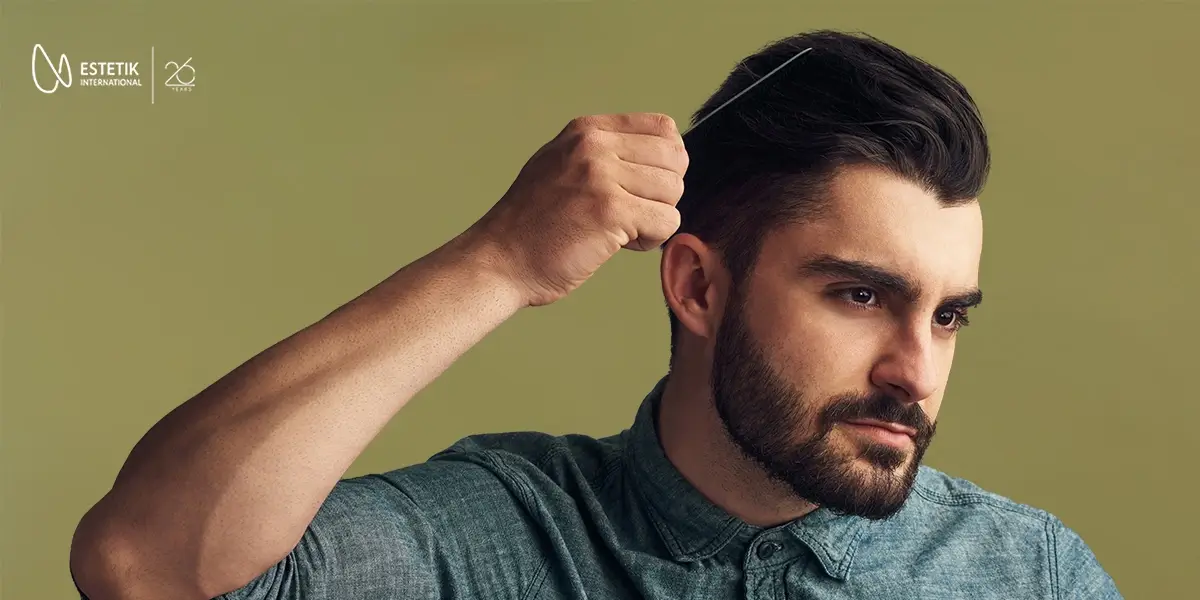




Hair loss can be a devastating experience, affecting one's self-esteem and confidence. For years, people have sought various solutions to combat this issue, from wigs to medications and traditional hair transplants. However, a new technique is revolutionizing the field of hair restoration: organic hair transplantation. This innovative approach promises natural-looking results with minimal scarring and faster recovery times. In this article, we'll explore how organic hair transplantation is changing the game in hair restoration and why it might be the solution you've been looking for.
Before diving into the solution, it's essential to understand the problem. Hair loss can occur due to various factors, including:
Hair loss doesn't just affect your appearance; it can significantly impact your self-esteem and overall quality of life. Many people experience a loss of confidence, social anxiety, and even depression as a result of hair loss. This emotional toll is often what drives individuals to seek hair restoration solutions.
For years, wigs and hairpieces have been a go-to solution for those experiencing hair loss. While they provide an immediate fix, they can be uncomfortable, require regular maintenance, and often look unnatural.
Medications like minoxidil and finasteride have shown some effectiveness in slowing hair loss and promoting regrowth. However, they require lifelong use and can come with side effects.
Traditional hair transplant techniques, such as Follicular Unit Transplantation (FUT) and Follicular Unit Extraction (FUE), have been popular choices. While effective, these methods can leave visible scars and may not always produce the most natural-looking results.
Organic hair transplantation is a cutting-edge technique that focuses on using the patient's own hair follicles in the most natural and minimally invasive way possible. This method aims to mimic the natural growth patterns of hair, resulting in a more authentic appearance.
The organic approach is based on several key principles:
One of the most significant advantages of organic hair transplantation is the incredibly natural-looking results it produces. By carefully preserving the natural characteristics of hair follicles and placing them in a way that mimics natural growth patterns, the final result is virtually indistinguishable from one's original hair.
Unlike traditional methods that can leave noticeable scars, organic hair transplantation techniques result in minimal scarring. This is particularly beneficial for those who prefer to wear their hair short or are concerned about visible signs of having undergone a hair transplant procedure.
The organic approach is less invasive than conventional methods, leading to faster recovery times. Patients can typically return to their normal activities within a few days, with minimal discomfort and visible signs of the procedure.
The journey begins with a comprehensive consultation. During this meeting, a qualified surgeon will assess your hair loss, discuss your goals, and determine if you're a suitable candidate for the procedure.
Using advanced technology, healthy hair follicles are carefully extracted from the donor area, typically the back of the head where hair is genetically programmed to resist balding.
The surgeon meticulously plans the placement of each follicle, considering factors such as hair direction, angle, and density to ensure a natural appearance.
Using specialized tools, the harvested follicles are gently implanted into the recipient area, following the predetermined plan for optimal results.
Post-procedure care is crucial for successful results. Patients receive detailed instructions on how to care for their newly transplanted hair, including:
While initial results may be visible within a few months, the full effect of organic hair transplantation typically becomes apparent after 12-18 months. The transplanted hair grows naturally and can be styled, cut, and colored just like your original hair. With proper care, the results can last a lifetime.
Ideal candidates for organic hair transplantation are:
While organic hair transplantation may be more expensive than some traditional methods, many patients find the investment worthwhile given the natural-looking, long-lasting results. The cost can vary depending on the extent of hair loss and the number of grafts required.
Selecting an experienced and reputable surgeon is crucial for achieving optimal results. Look for:
While organic hair transplantation is generally safe, as with any surgical procedure, there are some potential risks to be aware of:
As technology continues to advance, we can expect even more refined techniques in organic hair transplantation. Research into stem cell therapy and hair cloning shows promise for potentially unlimited donor hair in the future.
Organic hair transplantation is revolutionizing the field of hair restoration by offering a natural, minimally invasive solution to hair loss. With its ability to produce remarkably natural-looking results, minimal scarring, and faster recovery times, it's no wonder that more and more people are turning to this innovative technique. If you're struggling with hair loss and seeking a long-term solution, organic hair transplantation might be the answer you've been looking for. Consult with a qualified specialist to determine if this groundbreaking approach is right for you.
The duration can vary depending on the extent of the transplant, but most procedures take between 4-8 hours.
The procedure is performed under local anesthesia, so patients typically experience minimal discomfort during and after the transplant.
Yes, once the transplanted hair has fully grown in, you can treat it just like your natural hair, including dyeing and styling.
Most patients can return to work within 3-5 days, depending on the nature of their job and the extent of the transplant.
Some patients achieve their desired results in a single session, while others may require multiple sessions depending on the extent of their hair loss and their goals.
